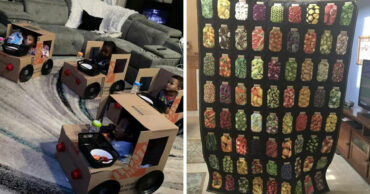A ruined trip can leave a bad taste in your mouth. It’s something you will remember for a long time, and could trigger some bad vibes the next time you visit the place.
This is likely what happened to this woman, who had a problem with her husband the entire time. From ruined dinner plans to being the butt of a practical joke, she let out her frustrations through the lengthy post you’re about to read.
You may want to take smaller sips of your coffee, because you’ll be here for a while. As you scroll through, you will also find our interviews with a few experts who shared some insights.
A woman shared her unpleasant experience during a holiday with her husband and another couple

Image credits: EyeEm (not the actual image)
She had a dinner menu planned for the three-day trip
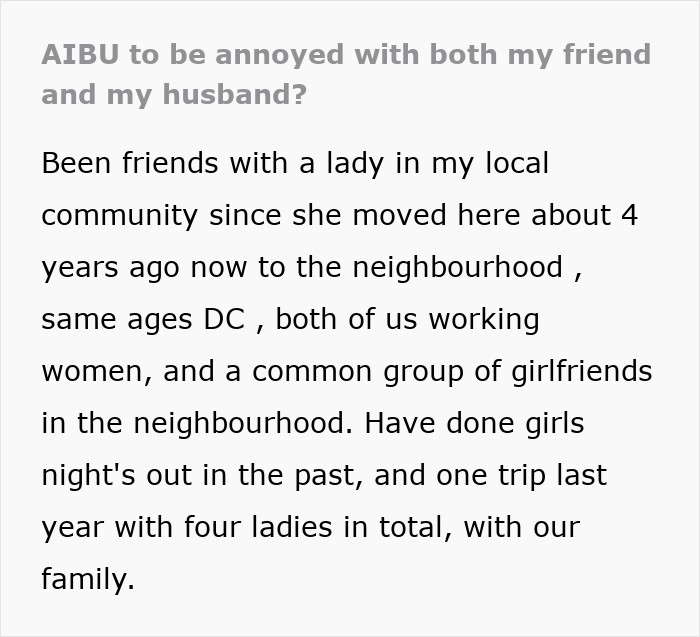

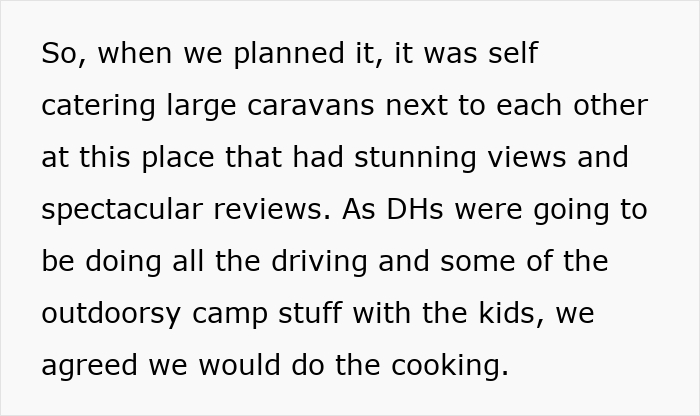
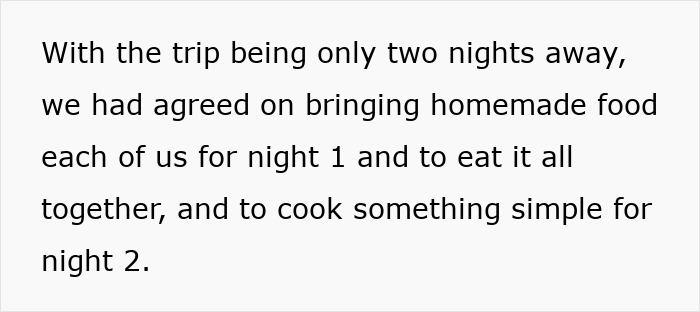

Image credits: Kiwistocks (not the actual image)
Her husband, however, offered to cook for their last night

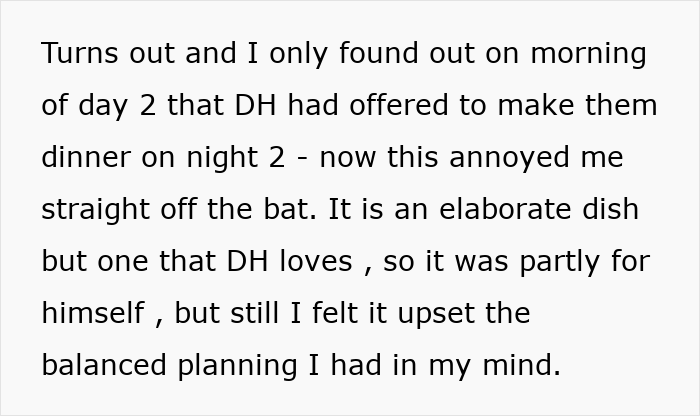
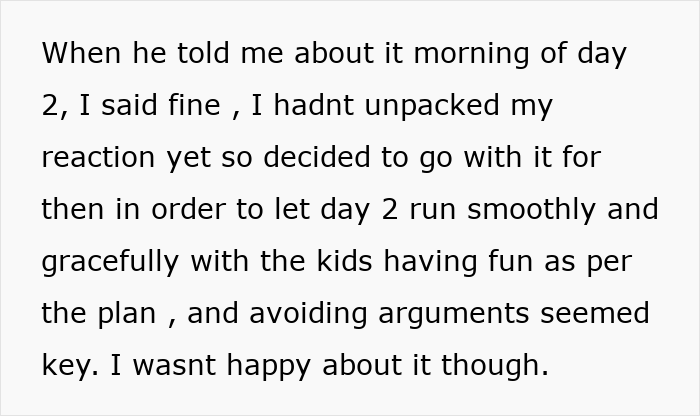
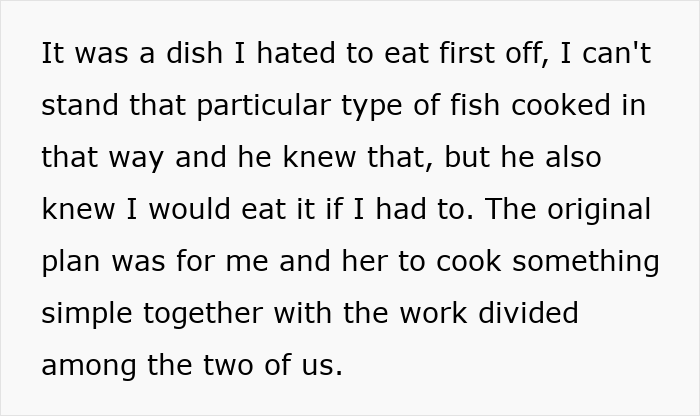

Image credits: alidrian (not the actual image)
She began questioning his motives


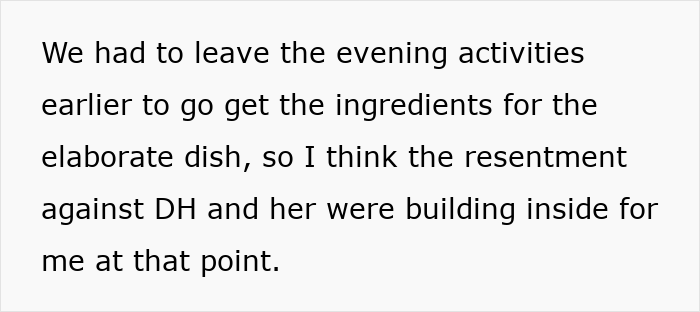
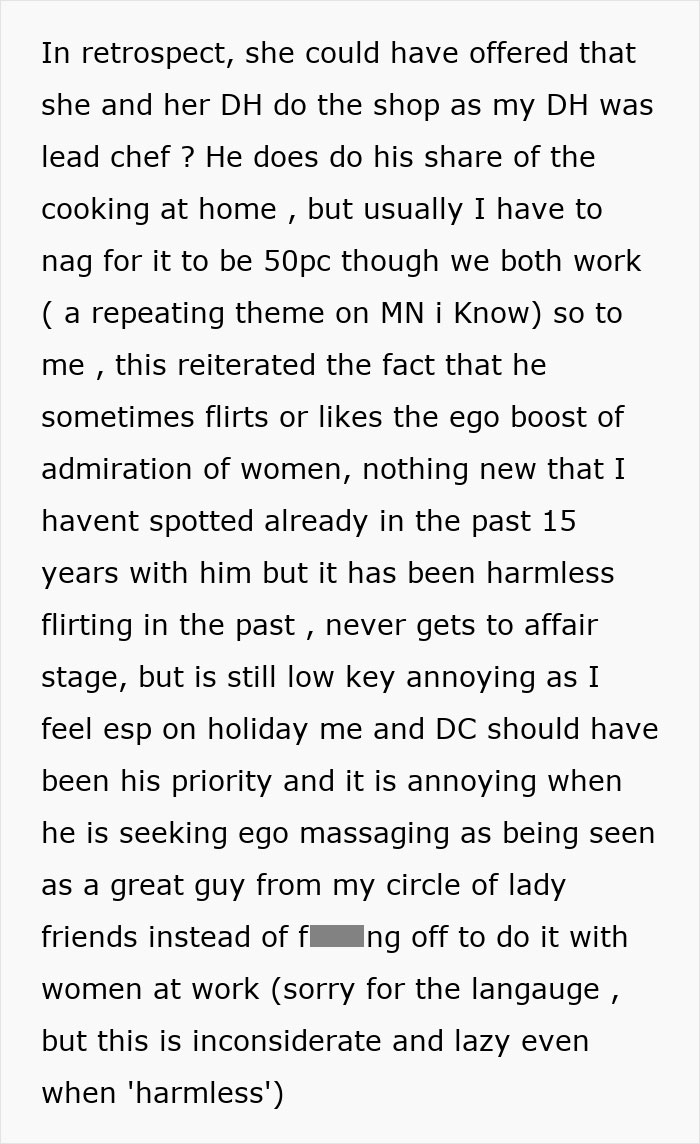

Image credits: gpointstudio (not the actual image)
Unfortunately, the husband ruined their dinner

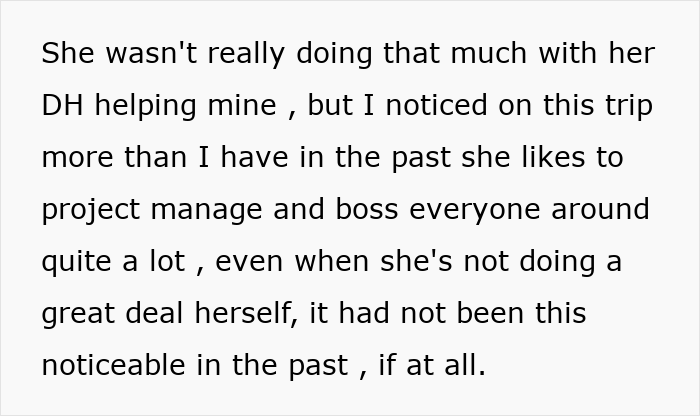



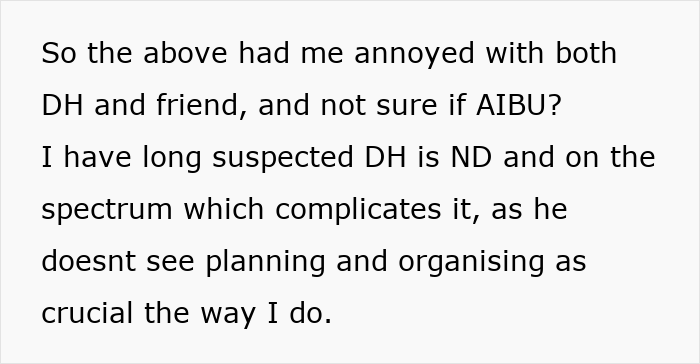
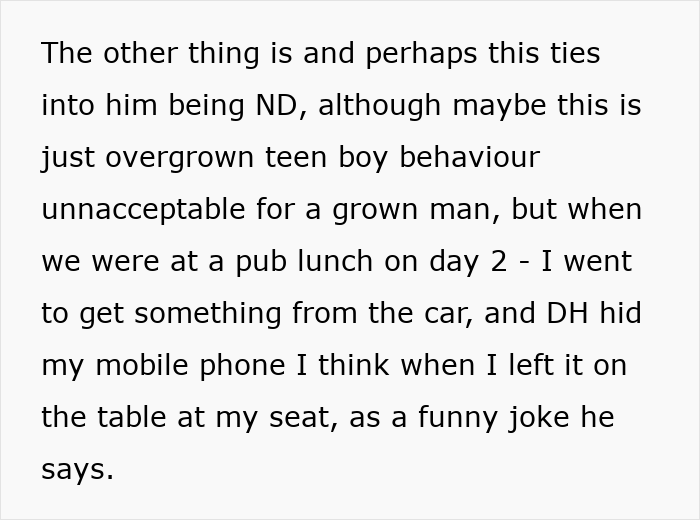

Image credits: user17015586 (not the actual image)
The woman also didn’t appreciate her husband’s practical jokes



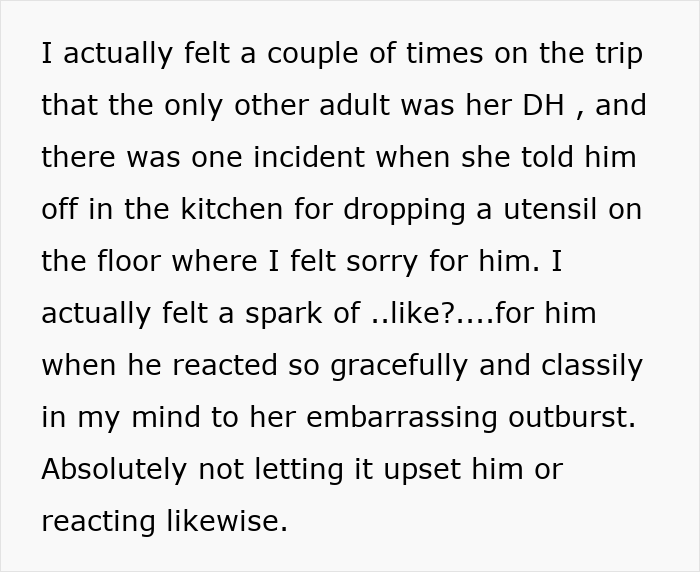
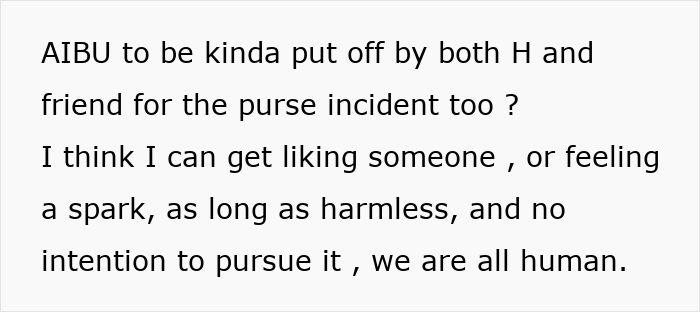


Image credits: JaneAustenFann
Neurodivergence in marriages can manifest in different ways
One key detail that the woman mentioned is her suspicion that her husband may be neurodivergent. And in a marriage setting, signs can show up in ways that may cause confusion.
According to clinical mental health counselor and This LoveWorks founder Marianne Marlow, MA, LMHC, neurodivergence among married couples can show up as “initiation misses.”
“(It’s) when one partner doesn’t send the usual social cues of interest,” Marlow told Bored Panda, clarifying that it isn’t necessarily disinterest, but a different way of signaling connection.
Therapist, ADHD coach, and educator Kristin Koliha shared a similar sentiment, specifying that the neurotypical partner may get frustrated by their neurodivergent partner’s interruptions, which may result in not feeling heard or dismissed.
The biggest challenge that these couples may face is in co-regulation. As Marlow explains, neurodivergent partners may not notice their emotional shifts until distress levels are high. And when that happens, calming each other down may be more difficult.
Then there’s the gap between intention and execution, as pointed out by licensed professional clinical counselor Karina Westrick, LPCC. As she explained, neurodivergent partners try their best to be responsive, but their challenges make it a limiting factor.
Coping with a neurodivergent partner is about mutual compromise
Neurodivergence in marriages can pose challenges. But as Marlow emphasizes, it’s also about mutual compromise by embracing the partner’s unique strengths. Honesty also helps.
“While directness may feel startling at first, it can become a foundation for trust and intimacy,” she said.
The neurodivergent partner can also do their part by building behavioral and social skills, according to Westrick. But at the same time, their spouse must also do their part.
“They may have to balance their expectations with an acceptance of their partner’s neurodivergent traits they perceive as challenging,” she said.
But when the challenges become more difficult to handle, professional help may be the next best step.
“Professional support can help both partners build communication skills, understand each other’s motivations, and develop strategies for handling difficult situations,” Koliha said.
Based on the woman’s account, there appear to be unresolved issues between her and her husband. But instead of looking at them from a perspective of judgment, seeking professional help may work better in finding solutions to these problems.
The author posted follow-ups and answered questions of readers, who didn’t hold back their opinions
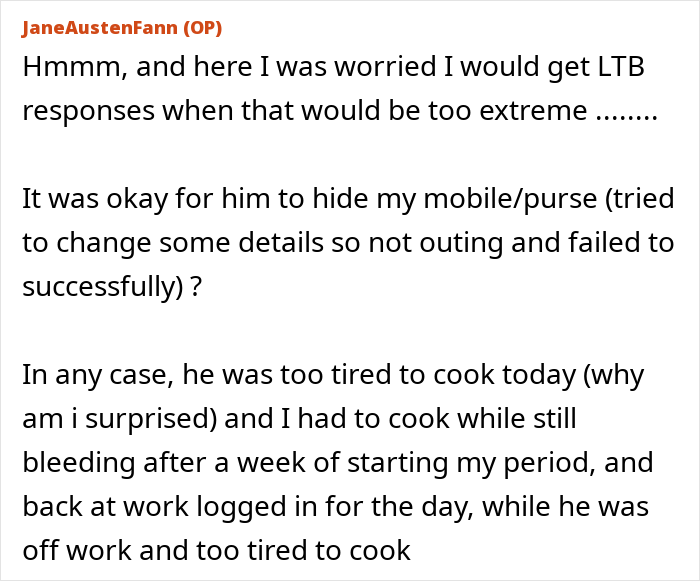

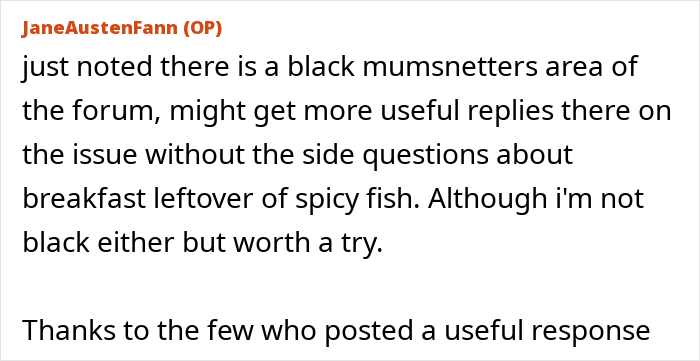







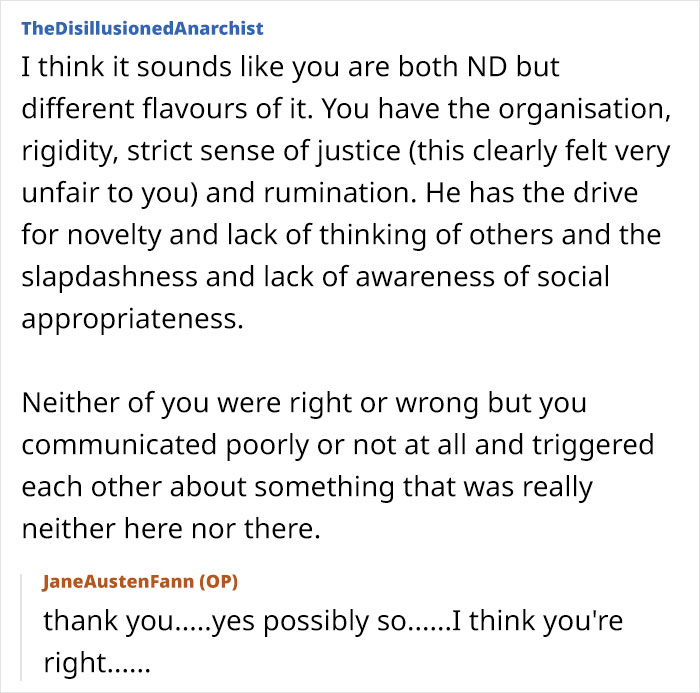
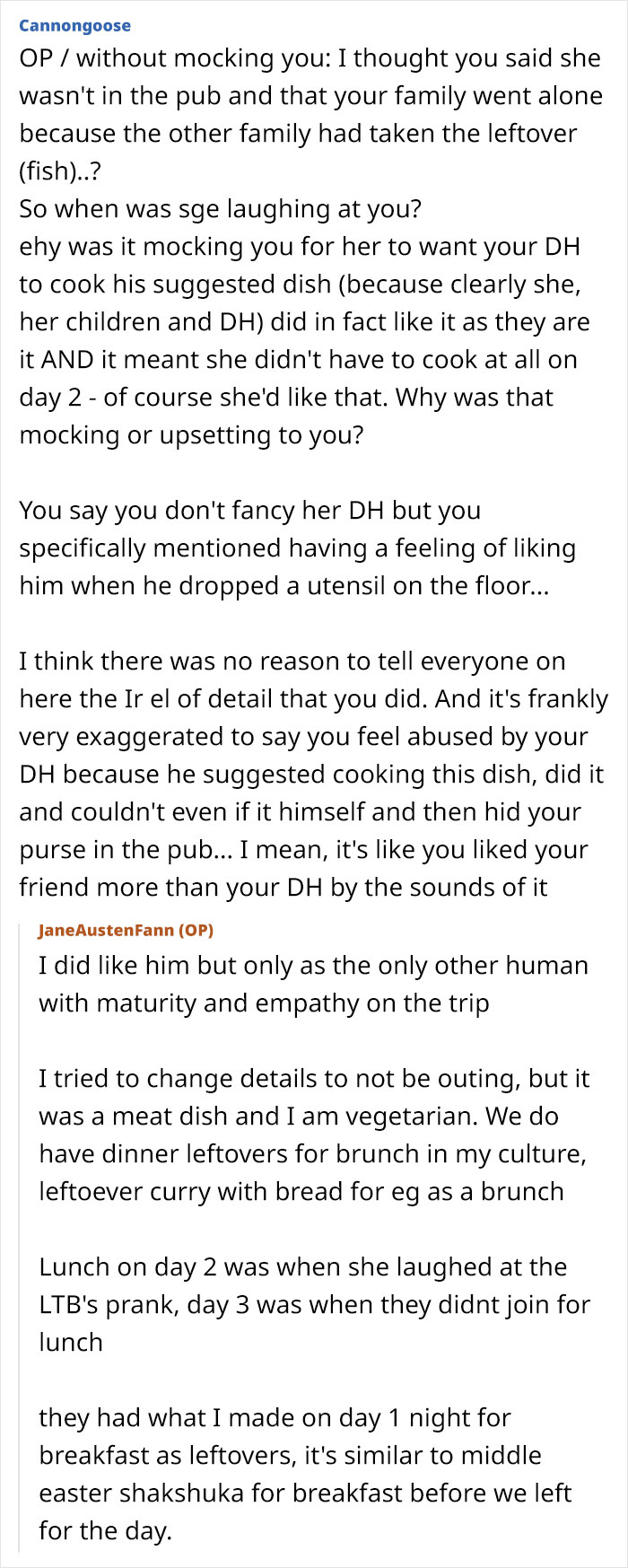

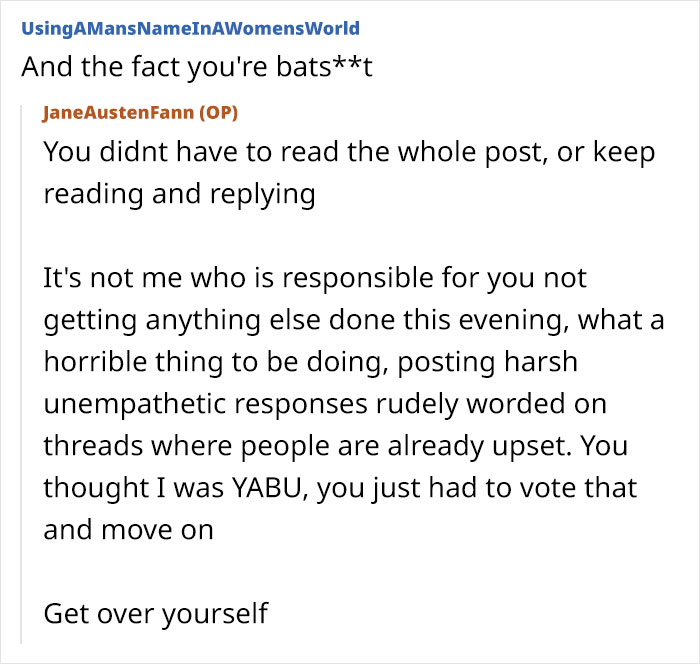
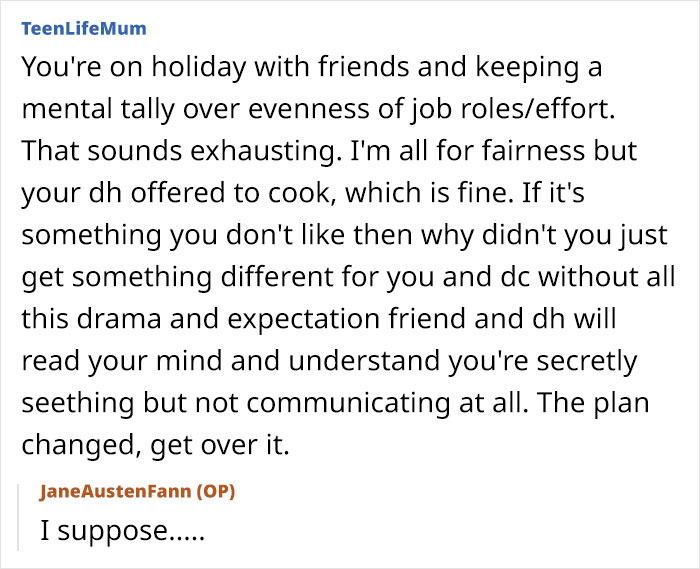

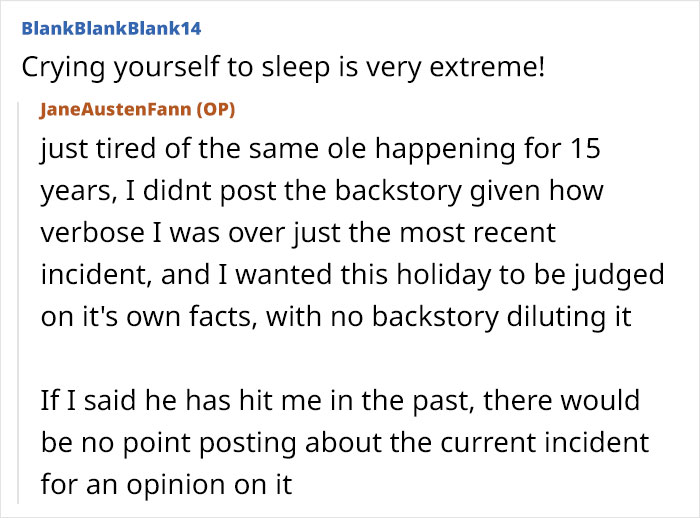
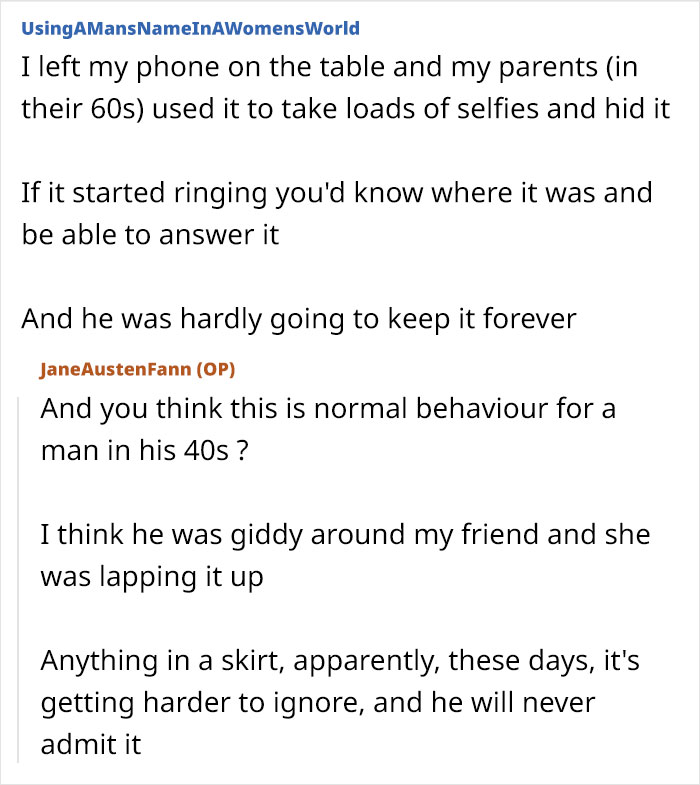
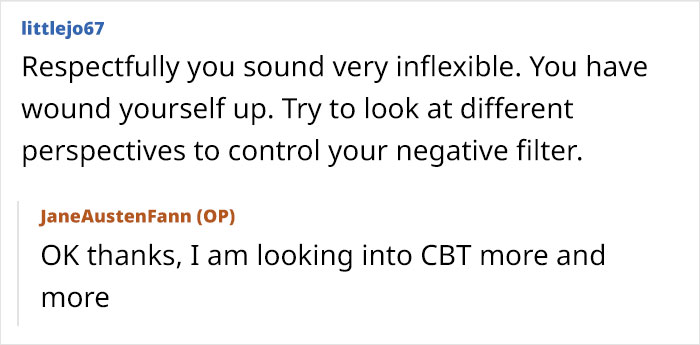
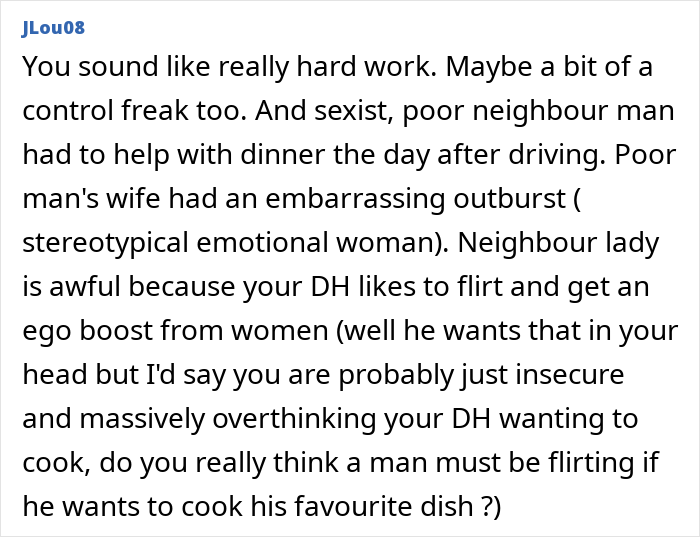

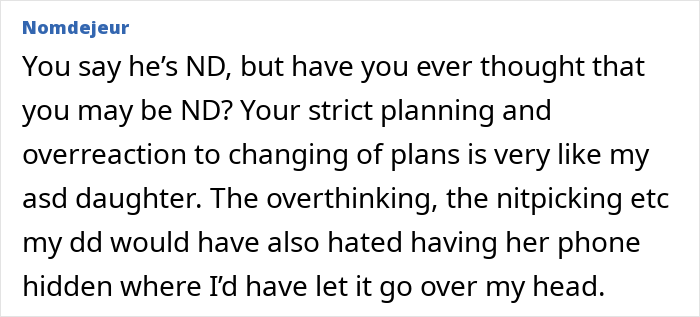









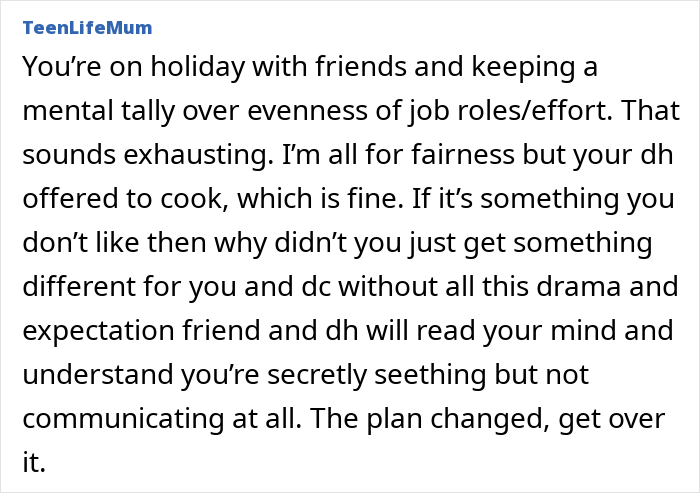
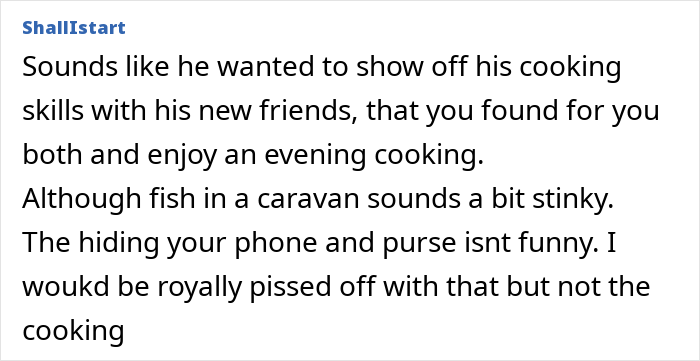

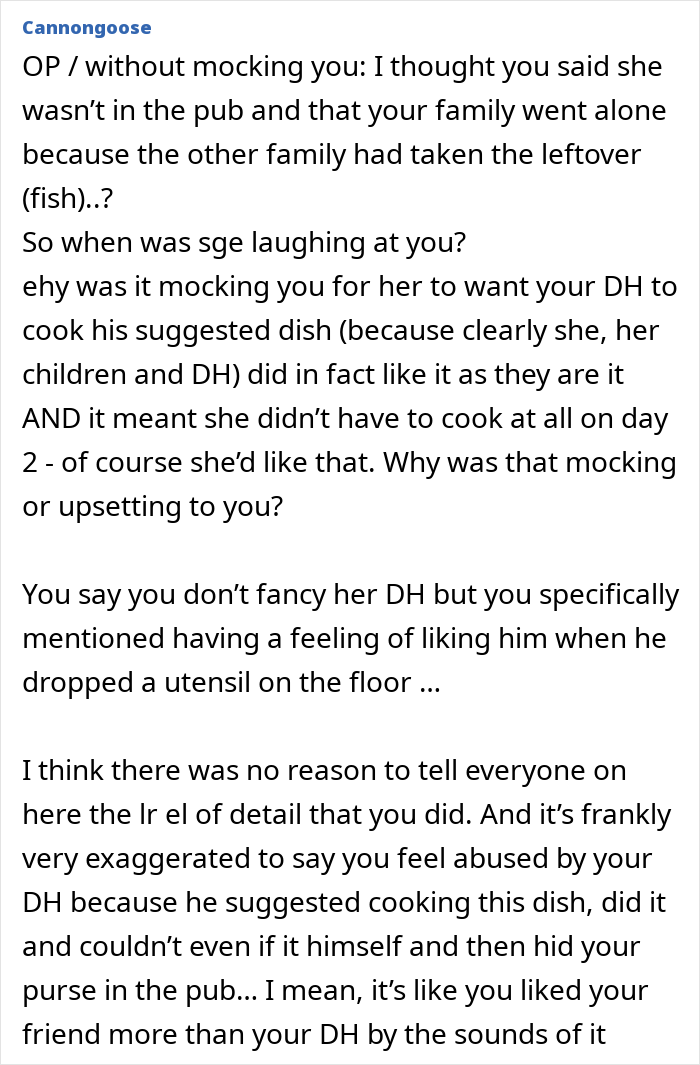

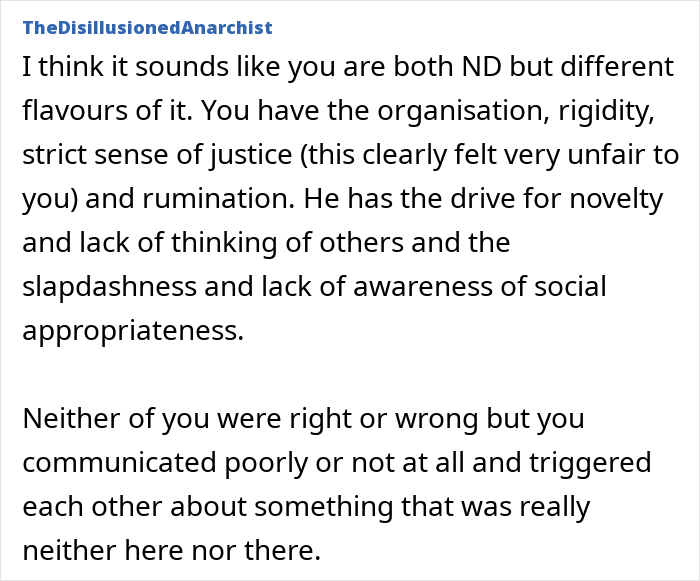

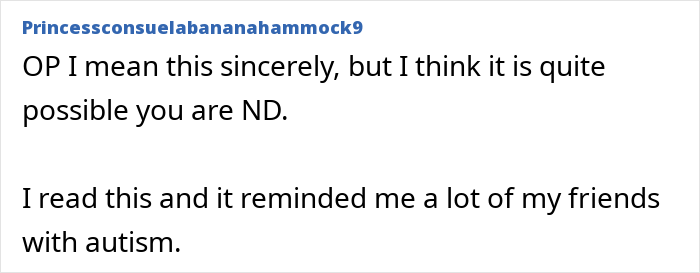
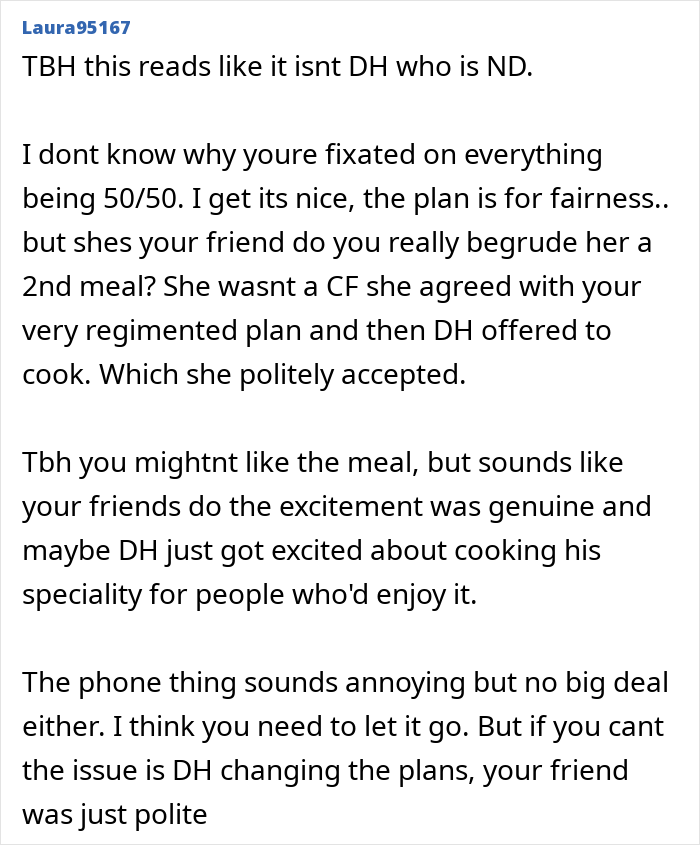







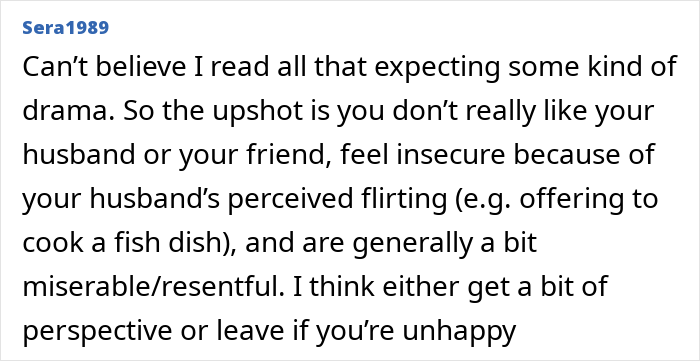


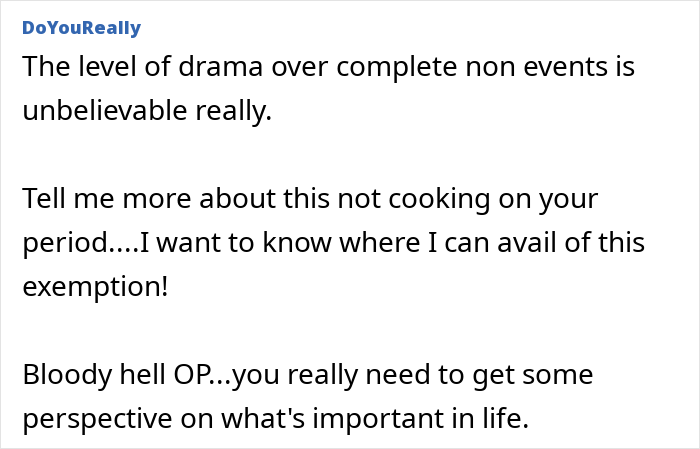
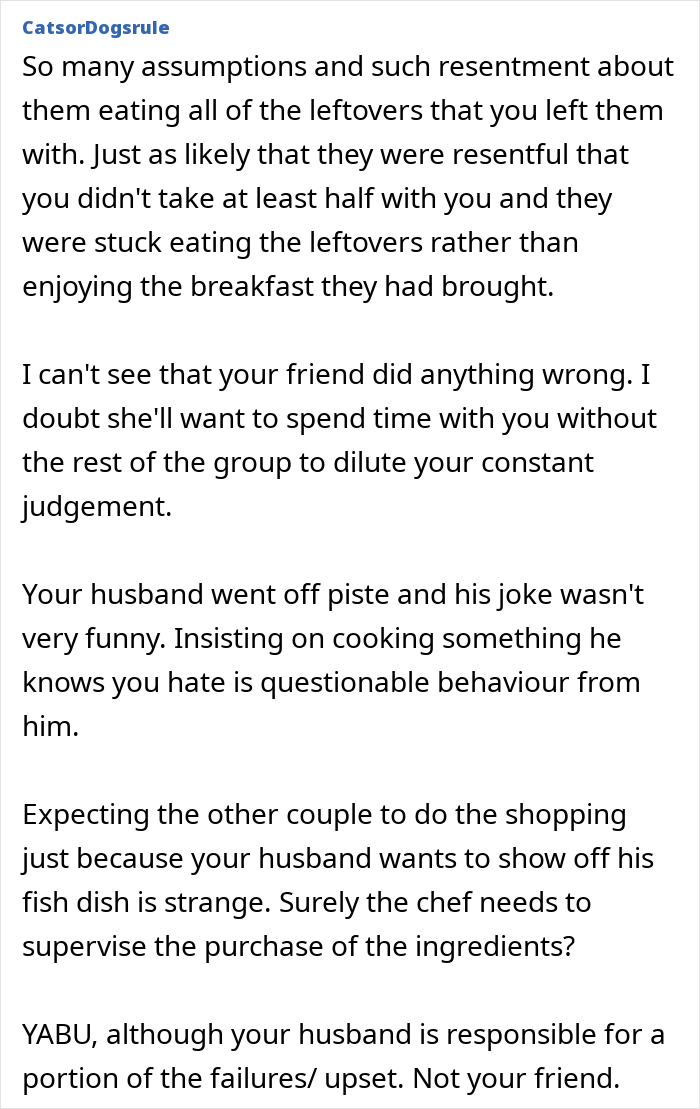


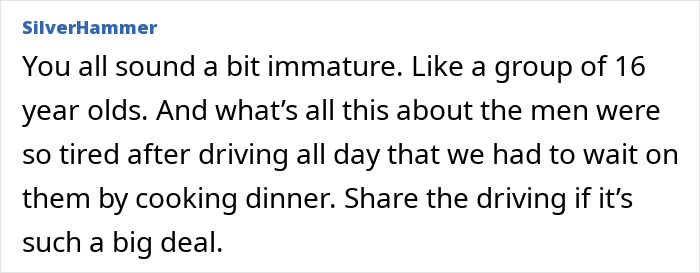


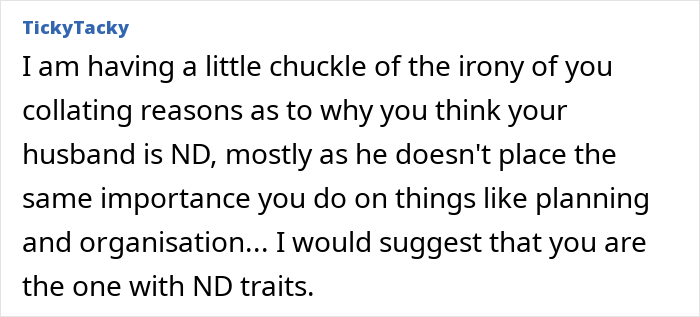





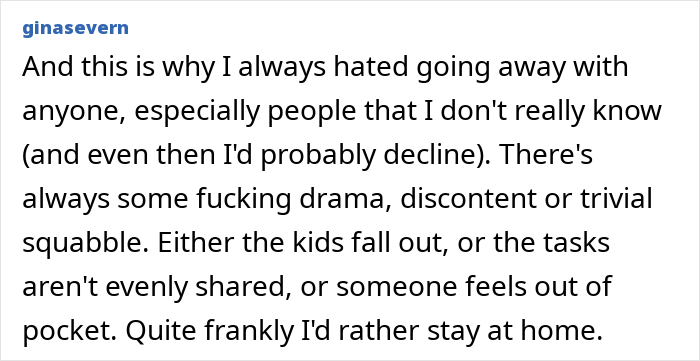








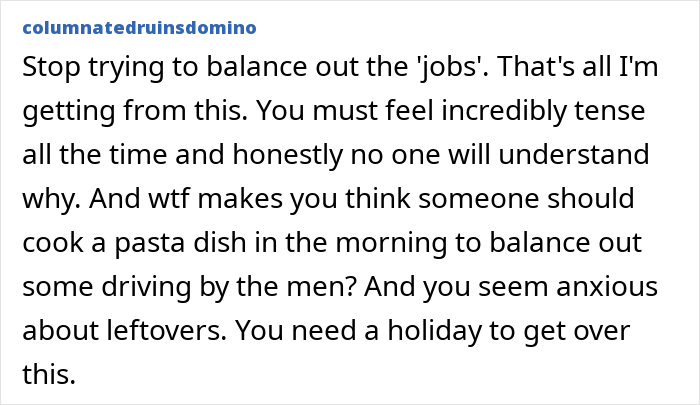
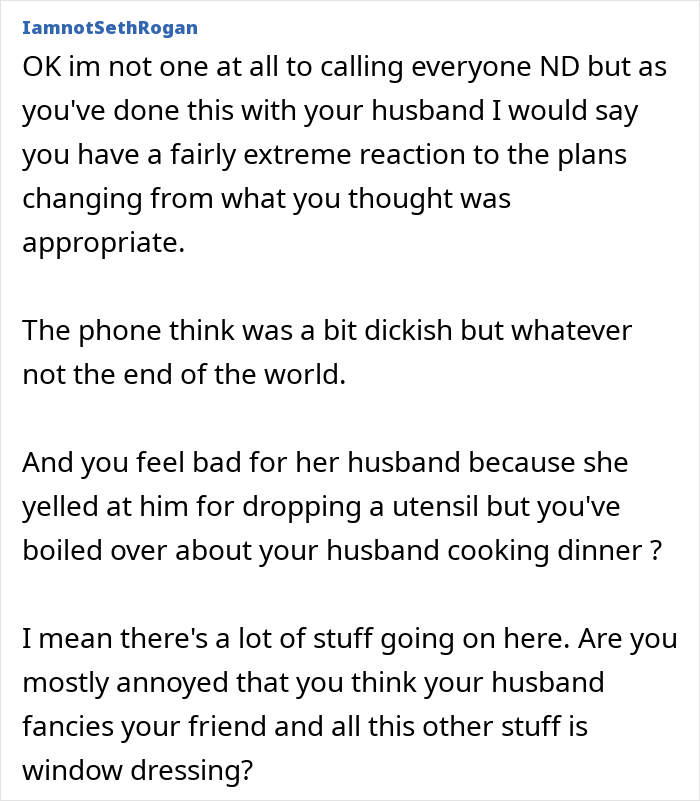
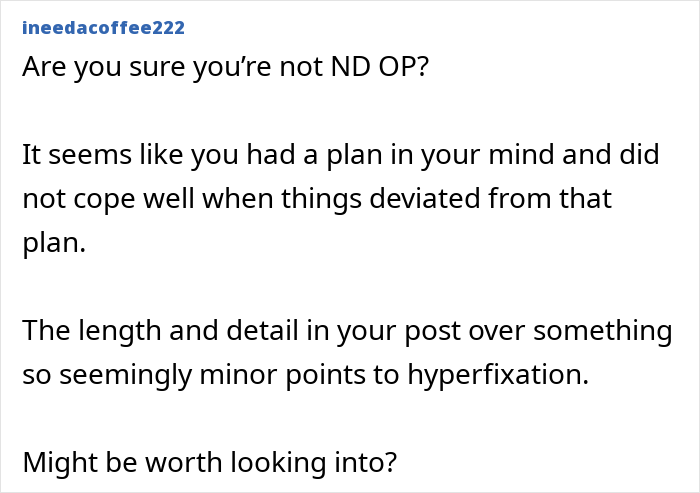
 Follow Us
Follow Us

